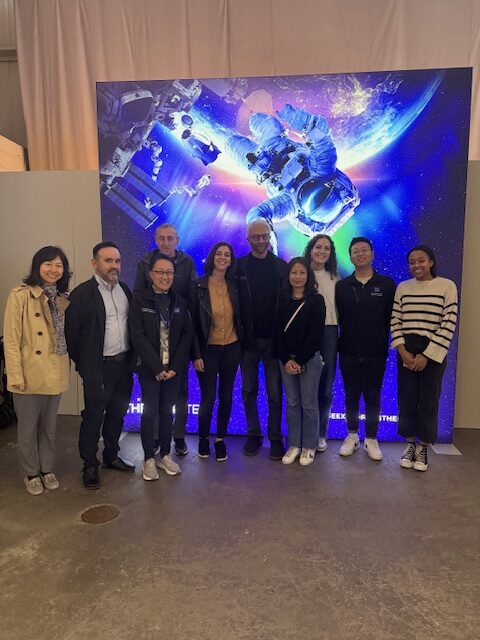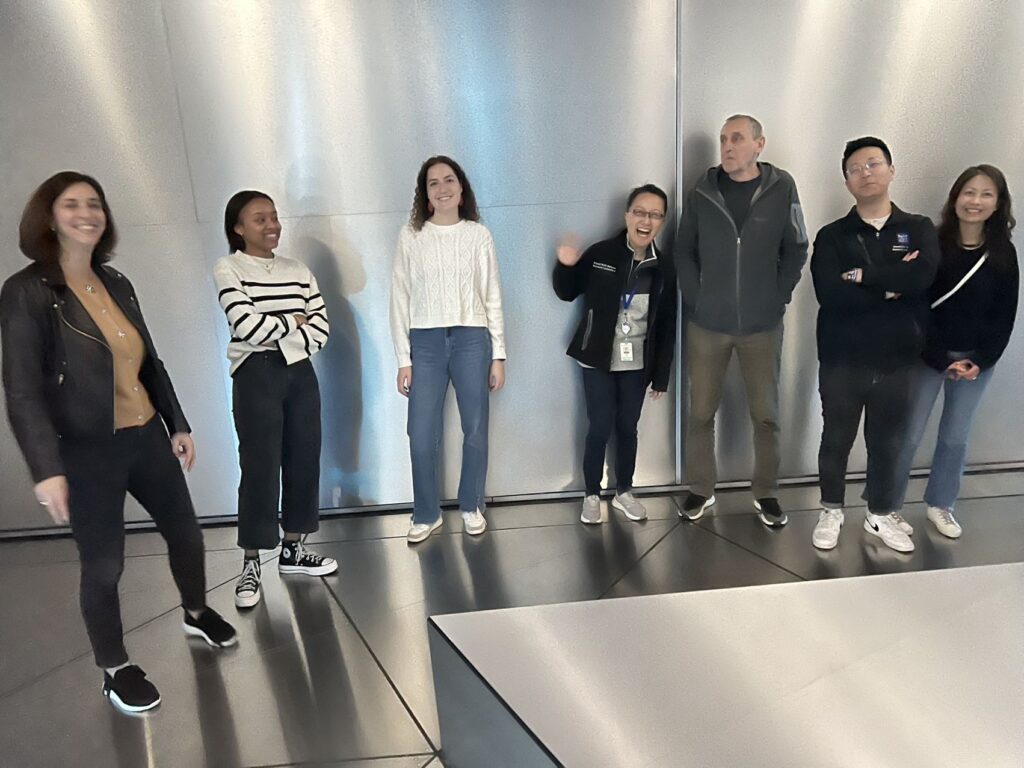February 2024
Julia Enterria Rosales recently joined our laboratory as a PhD student in the Development, Disease Models and Therapeutics PhD program at Baylor College of Medicine. She graduated from Tecnológico de Monterrey in Guadalajara, Mexico with a B.A. in Biosciences in 2023. Her undergraduate research experiences at Houston Methodist and Universidad Complutense de Madrid sparked her interest in translational, disease-centered research, which she will pursue as a graduate student. Julia is interested in understanding the mechanisms behind congenital diseases and developing novel therapeutic strategies for their treatment.
September 2024
Dr. Bruna Corradetti is leading a groundbreaking research program alongside Prof. Richard Finnell and Dr. Francesca Taraballi that has just been awarded a $3M R01 grant from the Eunice Kennedy Shriver National Institute of Child Health and Human Development (NICHD). This funding will support our project titled “Biomimetic intervention strategies for endogenous in utero repair of spina bifida” over the next five years. Our team at Baylor College of Medicine and Houston Methodist Academic Institute is pioneering new, minimally invasive approaches to prevent and reduce neurological damage caused by spina bifida lesions in utero. This research has the potential to reshape early interventions for infants affected by this major congenital condition, offering new hope for improved outcomes. Through the application of stem cell-based and bioengineering techniques, we aim to bring innovative therapies that are already transforming other clinical fields into much-needed prenatal interventions. This project reflects the hard work and dedication of our incredible team. It is our hope that are efforts could make a profound impact on countless families. Here’s to the future of precision medicine, cutting-edge research, and the power of collaboration to transform lives. 💡🧬
October 2024
Time to say goodbye. This month we are saying goodbye and good luck to several lab members. Dr. Yunping Lei, who joined our group in 2010 and led our team’s efforts in genomic studies and mutational analyses for neural tube defects, has taken a faculty position at Shanghai Jiaotong University School of Medicine. Dr. Lei had great success in obtaining NIH research funding and was a co-author on 50 publications with the lab members. His many notable contributions included the identification of the CIC gene as a risk factor for the Cerebral Folate Deficiency Syndrome. We hope to continue to collaborate with Dr. Lei once he sets up his laboratory in Shanghai. We also bid farewell to Dr. John Steele, who was a former graduate student of Dr. Finnell who worked his way up the ranks to that of a junior faculty member (Instructor) at Baylor College of Medicine. Dr. Steele has moved on to a position as a research analyst with the US Food and Drug Administration. During his time with us, John was the author or co-author of 15 publications, with an interest on the impact of anti-seizure medications on pregnancy outcomes as well as the role of folates and one carbon metabolism in neural tube closure defects. Finally, we are saying goodbye to Ms. Paula Pimienta Ramirez, who got married this past July and has moved on to Austin, Texas to continue her research career. We are sad to see Paula leave us, as she was the primary technician for the DNA short read sequencing core under the direction of Dr. Lei. She also helped out in multiple research projects.
November 2024
Dr. Richard H. Finnell provided the invited keynote lecture entitled “The Biology of Neural Tube Defects: From Prevention Efforts to Stem Cell Therapeutics” at the 30th International Conference on Spina Bifida and Hydrocephalus” in Kuala Lumpur, Malaysia. He was also awarded the Lifetime Award of Excellence by the International Federation of Spina Bifida and Hydrocephalus for his research and leadership in the field over the last 40 years.
Dr. Finnell will also be a featured speaker in the symposium “Human Neural Tube Defects: basic embryology to predictive toxicology” at the American College of Toxicology annual meeting, which will take place in Austin, Texas in mid-November. His lecture is entitled “The Biology of Neural Tube Defects in the Context of Precision Toxicology”.
Award of Excellence at the 30th International Conference on Spina Bifida and Hydrocephalus
December 2024
Visit to the Space Station-December 5, 2024
To celebrate the end of another productive and enriching year, the laboratory launched itself from our Baylor College of Medicine home base to the far reaches of space courtesy of THE INFINITE, the so-called world’s most captivating immersive space experience. The Infinite inspired by NASA missions that through the transformative lens of immersive VR, transported our group 250 miles above Earth into the International Space Station. This voyage offers more than just mere observation; it immerses you in the essence of space exploration without ever leaving the ground. Being over 190 cm, I found the space station a bit confining, but otherwise enjoyable. The set up in Houston is great, the avatars for each of us were rather interesting, and the whole journey was very special. Upon returning to planet Earth, we headed straight to a Gulf Vietnamese Seafood restaurant to slurp down oysters, wings, shrimp, and pho. We shared our individual impressions of our time doing spacewalks which hopefully gave us a more expanded vision for thinking about our science.




